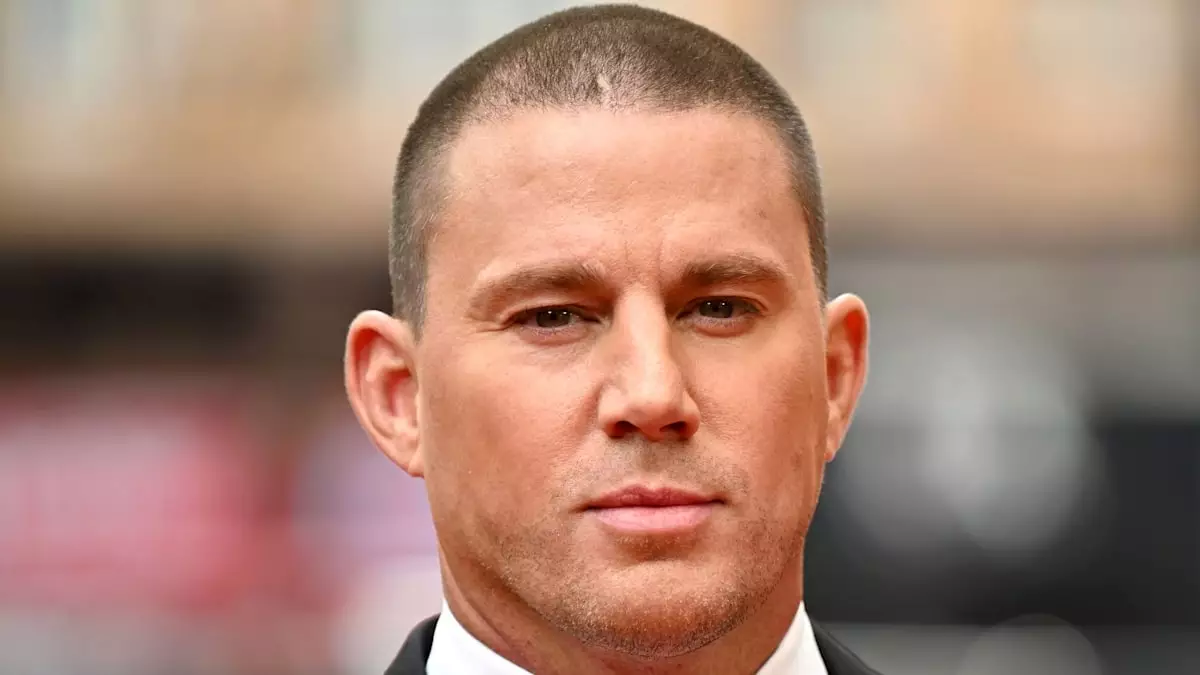Channing Tatum, a name synonymous with both charisma and physical prowess, has recently become an emblem of Hollywood’s relentless pursuit of transformation. His recent social media updates, featuring a staggering 63-pound weight fluctuation for two upcoming film roles, provoke a deeper contemplation of the costs associated with physical transformations in the film industry. While many applaud Tatum for his dedication, the underlying implications of such drastic body changes remind us of the precarious balance between artistry and health.
Tatum’s journey has taken him from the chiseled abs synonymous with his iconic “Magic Mike” persona to a more substantial build for the film “Josephine,” and then back again to a leaner physique for “Roofman.” These transformations highlight a troubling trend within the industry where physical appearance is often confused with talent. The question arises: at what point does the pursuit of a role’s physical requirements cross over into danger?
The Strain of the Spotlight
In his candid posts, Tatum reflects on the difficulties of achieving these extremes. The juxtaposition of his muscular frame at 205 pounds and the larger belly at 235 pounds prior to rapidly dropping to 172 pounds for another role underscores this struggle. He expressed gratitude for his “chef/nutritionist/witch” and trainer, emphasizing the often invisible support networks that prop up such transformations. This glimpse into his personal experience exposes a seldom-discussed aspect of Hollywood: the toll that these expectations can take on an actor’s physical and mental well-being.
Tatum’s turmoil is not an anomaly; his experiences echo those of other actors who have put their bodies through the wringer in the name of art. The comparison to Christian Bale, another actor notorious for dramatic weight changes, serves as a cautionary tale. Bale’s admission of the physical and psychological strain associated with drastic weight loss and gain resonates deeply. His experience sheds light on an uncomfortable truth about the sacrifices actors make to inhabit their characters, often at great personal cost. While dedication to a craft is admirable, the ramifications on health cannot be overlooked.
The Call for Change
As Tatum and others navigate the tumultuous waters of physical transformation, a critical question lingers: Should Hollywood continue to glorify these extremes, or is it time to reconsider the narratives we celebrate? The portrayal of idealized bodies often perpetuates unrealistic standards, forcing performers to engage in dangerous practices to fit an archetype. The notion that an actor must be physically malleable to earn credibility undermines the vast and diverse talent pool within the industry.
Encouraging a shift in perspective towards performance and artistry could inspire future generations of actors to prioritize their well-being over aesthetic transformations. With growing awareness of mental health and body positivity, it’s imperative that the industry takes collective steps to support performers. By embracing a broader array of body types and experiences, filmmakers and audiences alike can celebrate authenticity rather than conformity to unattainable standards.
Audience and Industry Perspectives
Responses to Tatum’s weight fluctuations reveal the mixed feelings surrounding such transformations. While some fans and colleagues express admiration, others voice concern for the physical ramifications inherent in these processes. Celebrities like Padma Lakshmi and Natasha Lyonne underscore the complex relationship between artistic ambition and personal health. Their responses suggest that appreciation for an actor’s dedication does not absolve the industry from its responsibility to prioritize safety over sensationalism.
In a landscape where body image often dictates success, creators must challenge the cultural narratives that endorse harmful practices. By fostering an environment where various forms of artistry can flourish without the burden of unrealistic physical demands, the industry can nurture a healthier and more inclusive approach to storytelling.
Channing Tatum’s journey serves not only as a reflection of his commitment to his craft but also as a critical commentary on the lengths entertainers must go to in order to conform to industry expectations. Recognizing the real implications of such transformations opens the door for a necessary dialogue surrounding health, safety, and the evolving definition of talent in Hollywood.


Leave a Reply